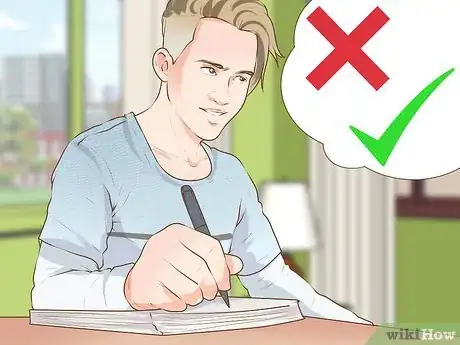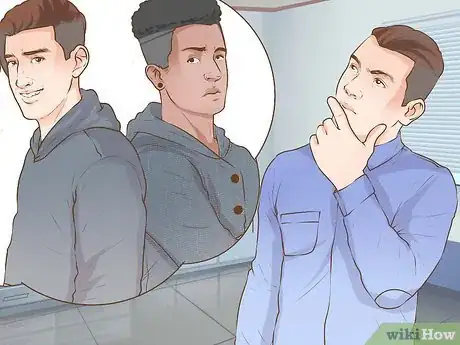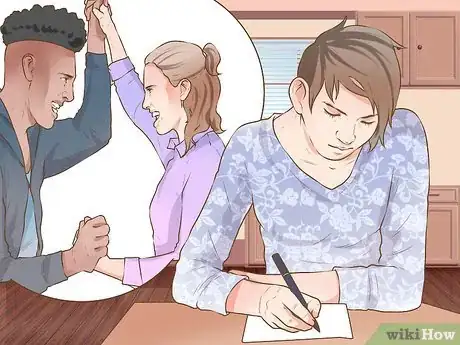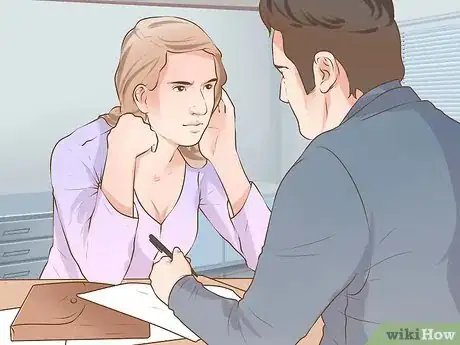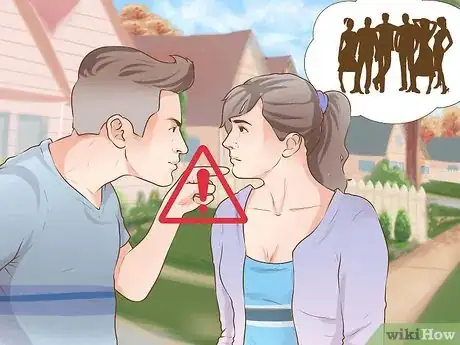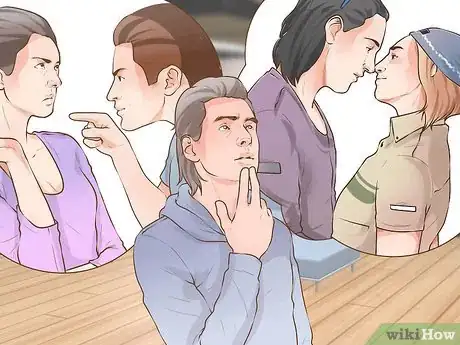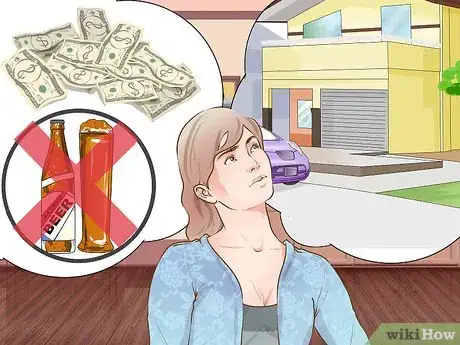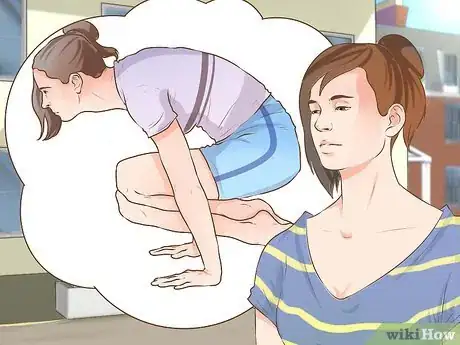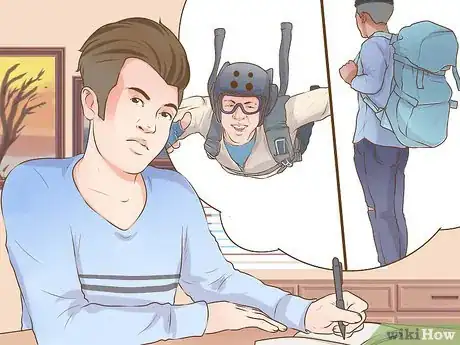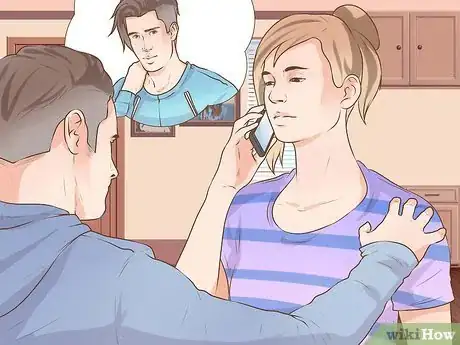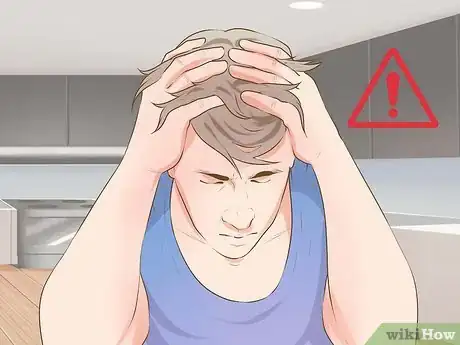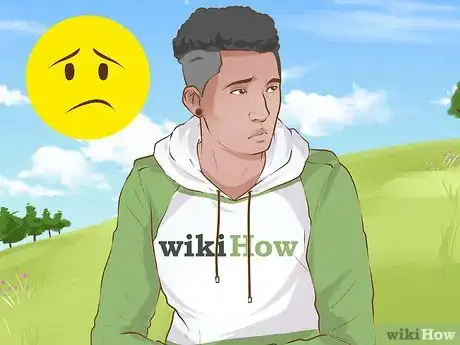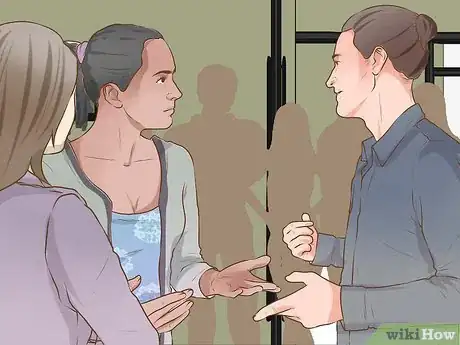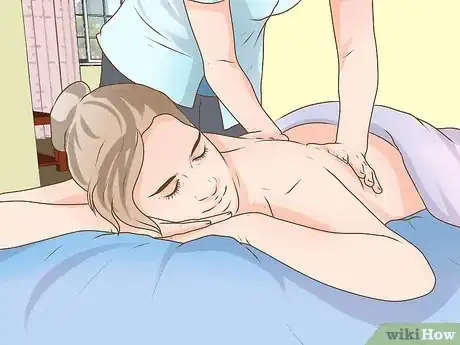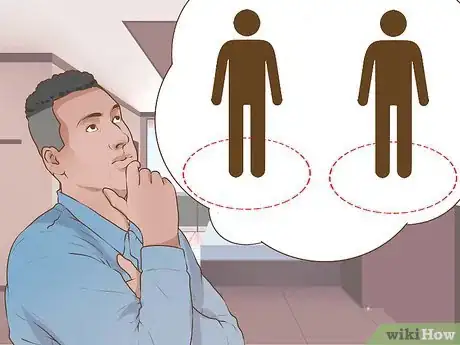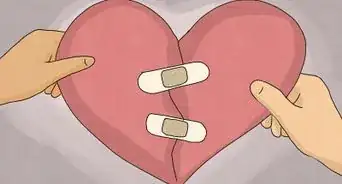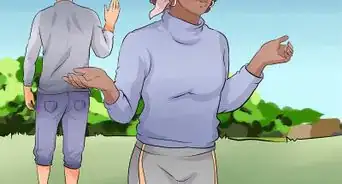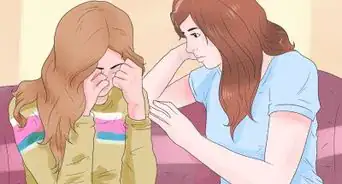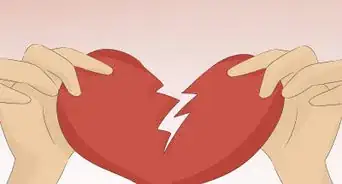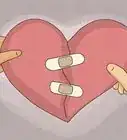This article was co-authored by Samantha Fox, MS, LMFT. Samantha Fox is a Marriage & Family Therapist in private practice in New York, New York. With over a decade of experience, Samantha specializes in relationship, sexuality, identity, and family conflicts. She also advises on life transitions for individuals, couples, and families. She holds both a Master’s degree and a Marriage and Family Therapy License. Samantha is trained in Internal Family Systems (IFS), Accelerated Experiential Dynamic Psychotherapy (AEDP), Emotion Focused Couples Therapy (EFT), and Narrative Therapy.
There are 14 references cited in this article, which can be found at the bottom of the page.
wikiHow marks an article as reader-approved once it receives enough positive feedback. In this case, 93% of readers who voted found the article helpful, earning it our reader-approved status.
This article has been viewed 314,408 times.
An addictive relationship is characterized by the need to continue to engage with or 'keep' the person despite obvious negative consequences. This can happen in both romantic relationships and friendships. In these relationships, you may feel as if you give all you have to this person, while getting little fulfillment in return. If you're struggling with an unhealthy attachment, you're in the right place. In this article, we'll show you how to analyze what's going wrong in the relationship and how to break that obsessive attachment once and for all.
Things You Should Know
- Make a list of pros and cons about your connection with the person and reflect on your interactions with them to find evidence of an unhealthy relationship.
- Sever any physical connections to the person, like finances or work projects, and focus on your own personal goals and other positive people in your life.
- Remember that it’s OK to feel lonely after severing ties with someone. If needed, join a support group for codependency or chat with a therapist.
Steps
Analyzing the Relationship
-
1Make a list. Write a column for positive things you get out of the relationship, and another column to list the negative things about the relationship. Dig deep into your life to establish whether connections are socially, mentally, emotionally, or professionally healthy.[1] Here are some aspects of healthy relationships for you to consider:
- Open, honest communication. Both people feel able to express their feelings and opinions without fear of being harmed or belittled for them. Both people use kind, caring language to express their feelings and do not use shaming or blaming language. Both people do not make excuses for their actions. Both people acknowledge the validity of the other's emotions.
- Fairness and negotiation. Both people are willing to negotiate and compromise in order to find healthy solutions. Neither person always gives in or gives up. Both people attempt to see the situation from the other person's perspective. Neither person is "in it to win it" at the expense of the other.
- Shared responsibility and power. Neither person makes all the decisions. If one person usually makes decisions, it is because both people are comfortable with this.
- Respect. Both people feel valued for their unique selves. Both people express appreciation for the other. Even when angry or hurt, both people maintain respect and do not use hurtful or violent language or actions.
- Trust and support. Both people are supportive of each other. They want the best for the other person. Both people feel like they can rely on the other. Both feel safe to share their emotions, desires, and needs without fear of being judged.
- Intimacy. This may be physical affection. It can also be respecting the other person's boundaries or privacy. Truly intimate relationships do not attempt to control or monitor one person's behavior.
- Personal integrity. Both people have a sense of self distinct from their relationship. Both have a sense of independence and maintain their own values, tastes, and beliefs. Both partners take responsibility for their words and actions.
-
2Review past relationships. Many people who become addicted to people have suffered from inadequate family relationships. Many times these family members were not trustworthy or did not provide basic needs, such as food, shelter or emotional support.
- If the person to whom you are addicted reminds you of a past family member or another relationship, you may be looking to compensate for a previous failed relationship through this current relationship. You will need to separate the feelings from the two different relationships to move on.
- A hallmark sign of a codependent person is attracting individuals who are unstable. Maybe you always make friends or start relationships with individuals who are emotionally unavailable. Examine previous relationships to see if this is true for you.
Advertisement -
3Keep a relationship log. Write regularly about how the relationship makes you feel and what behaviors, hopes and fantasies you harbor. Writing about a relationship daily can help you avoid glossing over the bad moments and pretending the relationship is always good.
-
4Take note of your communication and interaction styles. In addictive relationships, the pair is usually unable to discuss risky issues and often glaze over certain topics with half-truths. If you notice that you and your partner rarely have truly intimate conversations relating to your personal fears or dreams, you may be in an addictive relationship.[2]
- Healthy relationships involve intimacy in which conversations go below the surface into areas you would normally not share with the public. These attachments also include give and take from both partners as well as mutual benefit from the attachment.[3]
- Unhealthy and codependent relationships generally stay above the surface and have few fulfilling conversations. Maybe you are always pretending to be cheerful around the other person, but, inside, you feel sad or confused. You may only ever feel relaxed and happy when the other person is feeling this way. You fear what would happen if you told your lover or friend how you really feel.
-
5Accept that a relationship isn’t healthy if you see evidence of obsessiveness, controlling, or abuse.[4] If your relationship with another has caused you to lose your own identity, lose other relationships, and feel as if you cannot function without the other person, these are signs of an addictive relationship. You need to get out of this relationship before the situation gets worse.
- Signs of an obsessive relationship may include delusional tendencies in which your partner or friend exaggerates any interaction you have with others. This person may think a smile with a stranger means something more. They may want to check your phone or email to be sure their relationship with you is priority.[5]
- A controlling partner may cause you to feel as if you have lost your individuality. This person may guilt-trip you about time spent away to the point that you find yourself spending almost no time with family or other friends.
- Most people think an abusive relationship equates to physical violence. In fact, obsessiveness and controlling behavior can lend to emotional abuse. If your partner or friend isolates you from others, acts possessive, tries to tell you what to do, or puts you down to maintain a position of authority over you, you may be in an emotionally abusive relationship.[6]
Breaking the Attachment
-
1Pinpoint which parts of your addictive relationship are fantasy and which are reality. It is common in such relationships to see your partner through rose-colored glasses. We have a tendency to maintain fantasies about what a person is like in the hopes of them someday coming true. We also may create fantasy narratives about the relationship that we tell other people.
- Accept reality about your partner. Instead of saying, "He's not that bad; he bought me a necklace for my birthday", tell yourself the truth about your partner: "She pretends to be jealous about other people I hang out with so I end up only hanging out with her" or "She often keeps me from seeing my family." If the relationship - platonic or romantic - causes you to feel powerless or controlled, you need to admit this to yourself. Don't pretend everything is going well just to maintain the attachment.
- Magnification (blowing things out of proportion) and minimization (seeing things as less important than they are) are common cognitive distortions, unhelpful ways of thinking that we can slip into unawares. If you find yourself constantly looking for excuses or dismissing things as "not that bad," you may be using these distortions to justify staying in the relationship.
-
2Break the physical connections you have to that person. Connections may include things such as finances, housing or work projects. Understand that you will need to give yourself extra time to break these connections. Also, ask yourself if your relationship addiction is based on the conveniences available to you by being with that person.[7]
- Change your bank account and start receiving paychecks to the new account if you are sharing funds with this person.
- Look for a new place to rent or live on a temporary basis if the unhealthy attachment is a roommate.
- Remove alcohol, drugs, food, sex or other triggers that may be tempting you to stay in an addictive situation.
-
3Plan activities with positive people in your life. In order to counteract the negative energy and feedback you have been getting in an addictive relationship, you must replace it with positive feedback from other sources. Renew connections now and surround yourself with thriving individuals who value what you have to offer.[8]
-
4Set personal goals. If you have been ignoring yourself because of a personal addiction, try picking up a hobby, starting to train for a fitness event or going for a promotion at work. If you start working on yourself, you will be able to clearly see how disconnected you have become in an addictive relationship.
-
5Make a list of your independent desires. Start each bullet point with “I want...” or “I would like...” so that you can start separating personal desires from relationship desires. These desires can range from wanting to visit Italy to getting a new haircut or color. Focus only on you while you break away from a love addiction. [9]
Embracing Independence
-
1Decide how you will handle the person if they get in touch with you in the future. Think of a plan or develop a script of how you will respond if you encounter this person. Remember: you should limit contact if the person reduces your self-esteem and makes you feel small or unloved.[10]
- For example, if the person wants to talk on the phone, suggest a date and time, and then go to a supportive friend's house to take the call.
-
2Expect withdrawal symptoms. In the place of euphoria, excitement and infatuation, you may experience fear, self-doubt, loneliness and panic after an addictive, codependent relationship dissolves. Physical symptoms can mimic those of substance abuse like being unable to sleep or eat, cramping, shaking, and experiencing nausea. These are normal parts of breaking a bond that gave you positive feelings. The symptoms will eventually fade.[11]
-
3Face feelings of loneliness or depression. If you feel chronically depressed, seek out the services of a professional counselor. Ending an addictive relationship can make you feel empty inside and make you believe you will never find another person to love. A counselor will help you to understand the importance of working on yourself and making sure you are healthy and whole.
- When you're in an addictive relationship, you're trying to get approval, love, acceptance, or belonging from some place other than yourself. To overcome those feelings, you'll have to start looking inward for your own comfort—but there may be some pain and grief throughout that process.[12]
- Keep in mind, feelings of worthlessness cannot be stamped out by relationships; you must resolve these feelings in order to ever fully love yourself or another person. Deal with your own self-esteem issues now, before you start dating again.
-
4Join a support group based on love addiction or codependency. You may find strength to cope by listening to the triumphant stories of others who have severed ties from an addictive relationship. In conjunction with seeing a counselor for individual therapy, attending meetings with others like you can help you to educate yourself on addictive relationships and learn how to spot such unhealthy relationships in the future.
-
5Take care of yourself. It can be easy to neglect yourself when you are feeling down about ending a relationship with someone you cared about. Take extra time to eat and exercise regularly, get quality sleep, and treat yourself gently. Doing a few self-care activities each week can also help you to feel more like yourself and bring some structure to your new-found independence. Relax in a soothing bubble bath, get your hair cut and styled, or visit the spa for a massage. Don't neglect yourself because you're feeling bad.[13]
-
6Learn how to set appropriate boundaries in relationships and friendship. Boundaries are significant to you living a healthy, stable life. Many people wrongly assume if they are extremely close to another person when they first meet, it's a sign of a perfect match. Keep in mind, you should have a life beyond your boyfriend/girlfriend or best friend.
- The next time you meet a new person be direct about your needs and any limitations you would like to set. In healthy relationships, both partners should have a say in how things work. Don't give up your power in another codependent relationship.
- Moving forward, always be mindful and aware of your past relationships/friendships that have been treacherous. Take things slow with any new person that enters your life. Always keep your needs in mind and practice self-care.[14]
- Finally, continue to seek outside support from your counselor or a local support group to receive education and encouragement as you form new healthy bonds.
Expert Q&A
-
QuestionWhy do we get addicted to people?
 Samantha Fox, MS, LMFTSamantha Fox is a Marriage & Family Therapist in private practice in New York, New York. With over a decade of experience, Samantha specializes in relationship, sexuality, identity, and family conflicts. She also advises on life transitions for individuals, couples, and families. She holds both a Master’s degree and a Marriage and Family Therapy License. Samantha is trained in Internal Family Systems (IFS), Accelerated Experiential Dynamic Psychotherapy (AEDP), Emotion Focused Couples Therapy (EFT), and Narrative Therapy.
Samantha Fox, MS, LMFTSamantha Fox is a Marriage & Family Therapist in private practice in New York, New York. With over a decade of experience, Samantha specializes in relationship, sexuality, identity, and family conflicts. She also advises on life transitions for individuals, couples, and families. She holds both a Master’s degree and a Marriage and Family Therapy License. Samantha is trained in Internal Family Systems (IFS), Accelerated Experiential Dynamic Psychotherapy (AEDP), Emotion Focused Couples Therapy (EFT), and Narrative Therapy.
Marriage & Family Therapist Addiction comes in all forms, and it represents a way your psyche has come to believe it will be soothed and feel at peace. Addiction to another person is another way of looking outward instead of inward, and trying to soothe yourself or fill yourself with love, acceptance, approval, or belonging through someone other than yourself.
Addiction comes in all forms, and it represents a way your psyche has come to believe it will be soothed and feel at peace. Addiction to another person is another way of looking outward instead of inward, and trying to soothe yourself or fill yourself with love, acceptance, approval, or belonging through someone other than yourself. -
QuestionHow do I stop being addicted to someone?
 Samantha Fox, MS, LMFTSamantha Fox is a Marriage & Family Therapist in private practice in New York, New York. With over a decade of experience, Samantha specializes in relationship, sexuality, identity, and family conflicts. She also advises on life transitions for individuals, couples, and families. She holds both a Master’s degree and a Marriage and Family Therapy License. Samantha is trained in Internal Family Systems (IFS), Accelerated Experiential Dynamic Psychotherapy (AEDP), Emotion Focused Couples Therapy (EFT), and Narrative Therapy.
Samantha Fox, MS, LMFTSamantha Fox is a Marriage & Family Therapist in private practice in New York, New York. With over a decade of experience, Samantha specializes in relationship, sexuality, identity, and family conflicts. She also advises on life transitions for individuals, couples, and families. She holds both a Master’s degree and a Marriage and Family Therapy License. Samantha is trained in Internal Family Systems (IFS), Accelerated Experiential Dynamic Psychotherapy (AEDP), Emotion Focused Couples Therapy (EFT), and Narrative Therapy.
Marriage & Family Therapist Breaking addiction is hard work, and life work. It requires being honest with yourself and starting to look inward instead of outward for your soothing. It may mean grieving loss and disappointment. You may also feel things that you haven't dealt with before, because you didn't have the tools to manage them.
Breaking addiction is hard work, and life work. It requires being honest with yourself and starting to look inward instead of outward for your soothing. It may mean grieving loss and disappointment. You may also feel things that you haven't dealt with before, because you didn't have the tools to manage them.
Warnings
- If you feel totally alone after ending a codependent relationship/friendship, reach out to family or friends and develop a support system of people who are willing to help you during this difficult time.⧼thumbs_response⧽
- If you are in an abusive relationship, you must take measures to protect yourself when leaving. You may have to request a police escort or file a restraining order to ensure your safety when you leave your partner.⧼thumbs_response⧽
References
- ↑ http://www.valdosta.edu/about/news/releases/2015/02/real-love-the-difference-between-healthy-and-unhealthy-relationships.php
- ↑ http://counselingcenter.illinois.edu/brochures/addictive-relationships
- ↑ http://www.apa.org/helpcenter/healthy-relationships.aspx
- ↑ http://www.pbs.org/thisemotionallife/blogs/it-loving-relationship-or-addiction
- ↑ http://www.medicinenet.com/confusing_love_with_obsession-page2/views.htm
- ↑ https://www.loveisrespect.org/resources/types-of-abuse/
- ↑ https://blogs.law.harvard.edu/carolynlapc/2012/10/29/anxiety-and-the-horrible-breakup/
- ↑ https://www.utica.edu/student-blogs/how-to-live-a-happy-life-tip-1-surround-yourself-with-positive-people/
- ↑ http://www.beliefnet.com/columnists/beyondblue/2008/05/a-dozen-techniques-for-ending.html
- ↑ http://www.uky.edu/hr/sites/www.uky.edu.hr/files/wellness/images/Conf14_ConfrontToxic.pdf
- ↑ http://www.npr.org/sections/health-shots/2015/01/13/376804930/breaking-up-is-hard-to-do-but-science-can-help
- ↑ Samantha Fox, MS, LMFT. Marriage & Family Therapist. Expert Interview. 19 January 2021.
- ↑ http://www.cmhc.utexas.edu/survivingbreakup.html
- ↑ http://psychcentral.com/lib/10-way-to-build-and-preserve-better-boundaries/
About This Article
If you’re in an addictive relationship, you might feel like you’re giving all you have while getting little in return. While it may seem difficult, with a little help you can break free of an unhealthy attachment and learn to be on your own. It’s more difficult to break free from someone if you share conveniences, so consider changing your bank account and finding a place to stay on your own. Plan more time with positive people in your life, like friends and family. These people will be able to remind you of your value outside the addictive relationship. Keep in mind that you may feel fear, self-doubt, and loneliness after breaking up with this person. These are normal to feel after breaking a bond, but they won’t last forever. To learn how to set your own goals in life and embrace your independence, read on!
